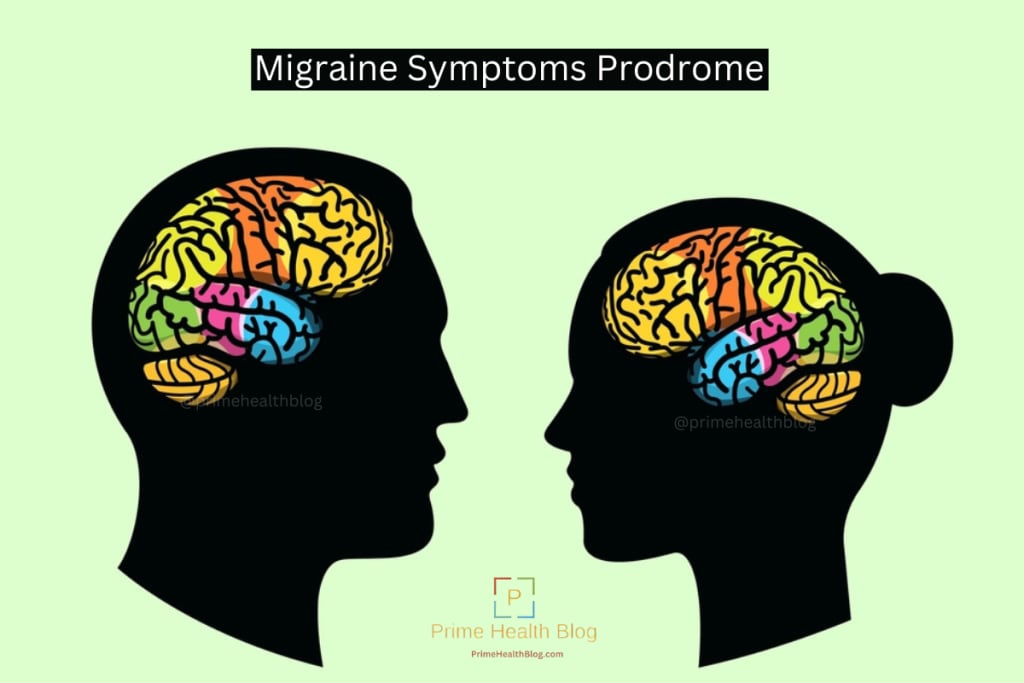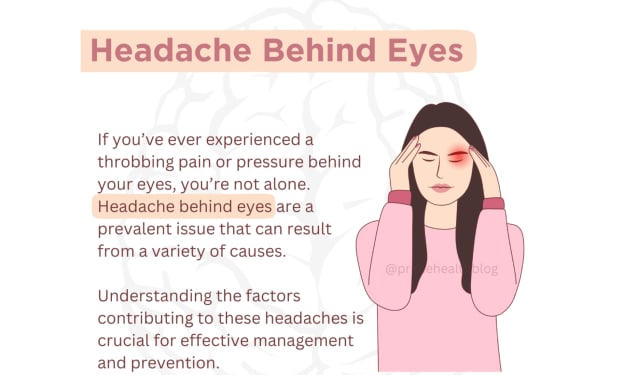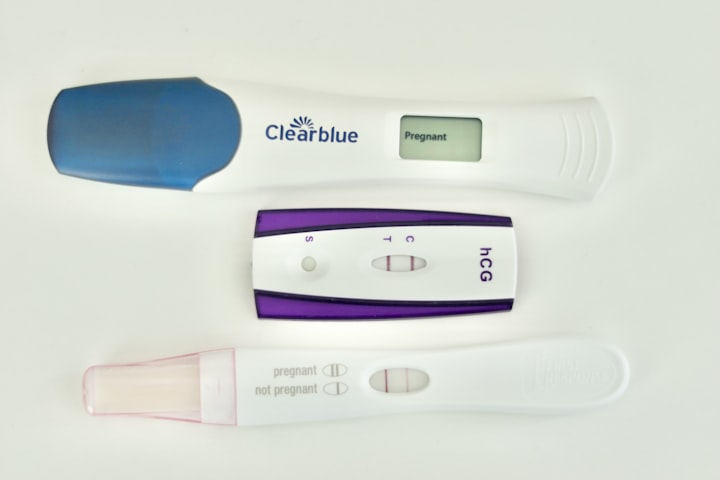Cause of Migraine Symptoms Prodrome
Migraine Symptoms Prodrome Cause in Male and Female

Migraine Symptoms Prodrome
The Migraine prodrome phase signifies the early onset of a migraine, occurring hours or even days before the headache itself. This phase manifests with various symptoms serving as precursors to an impending migraine attack.
This discussion addresses migraine prodrome symptoms in both men and women, along with treatment options and home remedies.
Typical migraine prodrome symptoms include:
Aura: Visual disturbances like flashing lights, zigzag lines, or blind spots may occur briefly and are known as auras.
Mood Changes: Mood swings such as irritability, depression, or euphoria are common during this phase.
Fatigue: Feeling unusually tired or lethargic is a frequent prodromal symptom, often more pronounced than general tiredness.
Stiff Neck: Stiffness in the neck muscles may be noticed during the prodrome phase.
Food Cravings: Specific cravings for sweet or salty foods may arise as a prodromal symptom.
Increased Thirst and Urination: Heightened thirst and more frequent urination may occur before a migraine attack.
Cognitive Changes: Difficulty concentrating, confusion, or changes in thinking patterns may occur.
Sensitivity to Light and Sound: Increased sensitivity to light (photophobia) and sound (phonophobia) can be early signs of an impending migraine.
Nausea: Nausea or gastrointestinal discomfort may develop before the onset of the headache.
It’s important to note that not all migraine sufferers will experience all of these symptoms, and the prodrome phase can vary from person to person.
Recognizing these warning signs is valuable for individuals with migraines, as it may enable them to take preventive measures or manage their symptoms more effectively.
Causes of Migraines in Males
Migraines in males, similar to females, stem from various contributing factors, though hormonal fluctuations typically play a lesser role in men.
Common factors contributing to migraines in males include:
Genetics: A family history of migraines increases the risk of developing migraines.
Hormonal Factors: While hormonal changes are less influential in men, fluctuations in testosterone levels or other hormones can contribute to migraines.
Triggers and Environmental Factors: Migraines can be triggered by stress, lack of sleep, certain foods, dehydration, bright lights, strong odors, and weather changes.
Caffeine: Overuse or withdrawal of caffeine can trigger migraines in some individuals.
Physical Factors: Intense physical exertion or certain postures may trigger migraines in some men.
Medications and Substances: Certain medications or substances may contribute to migraines as a side effect.
Alcohol: Excessive alcohol consumption or specific types of alcoholic beverages can trigger migraines.
Sleep Patterns: Irregular sleep patterns can also be a migraine trigger.
It’s important to note that each individual may have a unique combination of triggers, highlighting the need for personalized migraine management plans involving lifestyle modifications, stress management, and sometimes medication.
Treatment for Migraine Symptoms Prodrome:
Various treatment options and lifestyle modifications can help manage and reduce the frequency and intensity of migraine attacks. Treatment effectiveness can vary among individuals, so it's crucial to explore what works best for each person.
Strategies commonly recommended for managing Migraine Symptoms Prodrome include:
Medications: Over-the-counter pain relievers, prescription medications like triptans, and preventive medications may be prescribed.
Lifestyle Modifications: Identifying and avoiding triggers, maintaining regular sleep patterns, staying hydrated, maintaining a healthy diet, and managing stress are essential.
Behavioral and Physical Therapies: Cognitive-behavioral therapy (CBT), biofeedback, and alternative therapies like acupuncture may be beneficial.
Home Remedies for Migraine Symptoms Prodrome:
While not providing a cure, home remedies can help alleviate symptoms and complement medical treatments.
Some effective home remedies include:
- Using cold or warm compresses
- Resting in a dark and quiet environment
- Staying hydrated
- Consuming moderate amounts of caffeine
- Trying aromatherapy with essential oils
- Using ginger
- Peppermint oil
- Practicing acupressure
- Consuming herbal teas
- Incorporating magnesium-rich foods into the diet
- Practicing relaxation techniques
- Engaging in regular, moderate exercise
Individual responses to these remedies can vary, so it's important to find what works best for each person.
Consulting a healthcare professional for severe or frequent migraines is advised, and seeking support from friends, loved ones, or support groups can be beneficial for managing migraine-related anxiety or depression.
Hope you find this article on Migraine Symptoms Prodrome helpful and motivating. Stay updated with our new articles by subscribing to us.






Comments
There are no comments for this story
Be the first to respond and start the conversation.